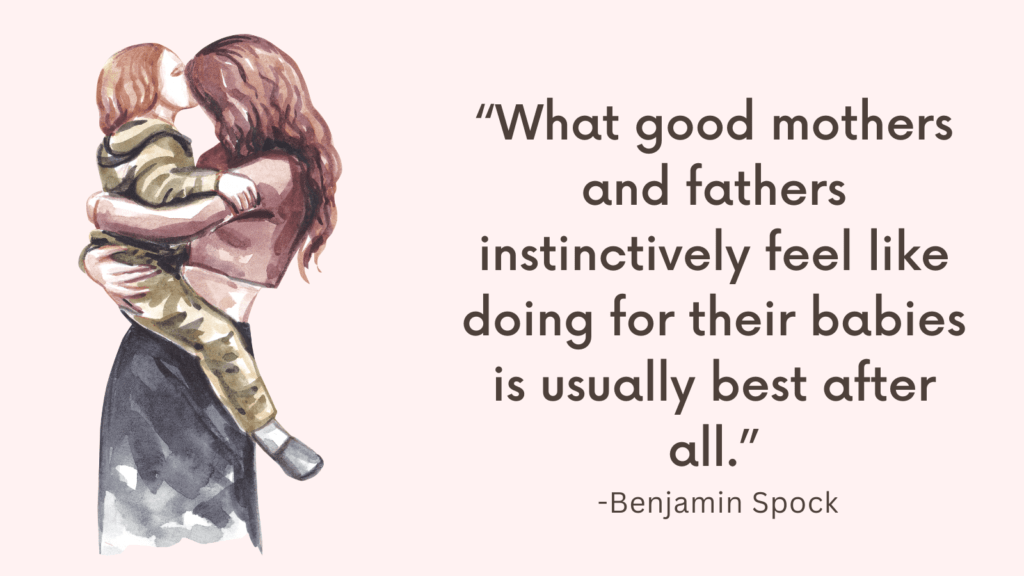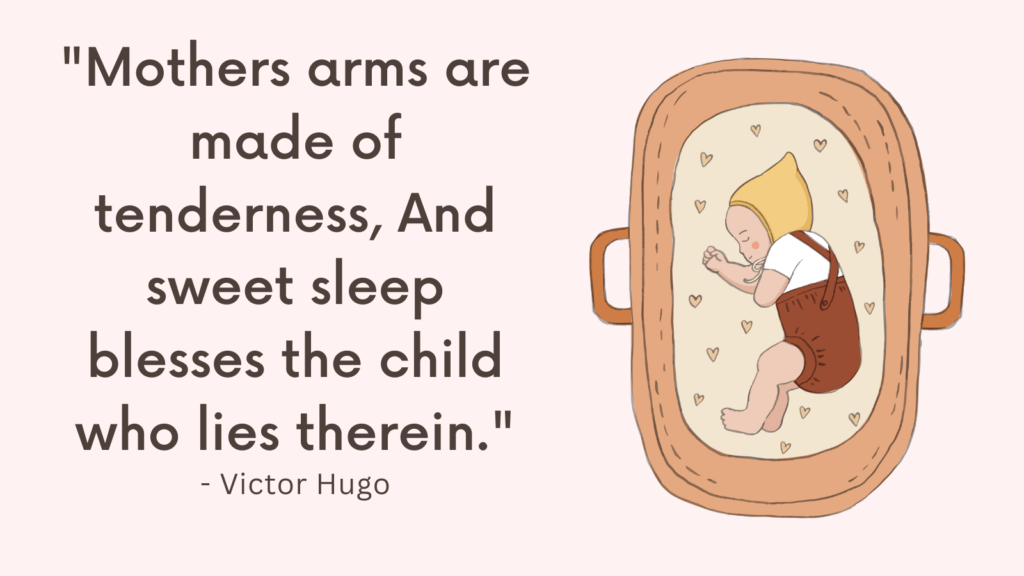In this post, you’re going to learn reasons why your baby doesn’t respond to their name and what you can do about it.
Baby’s Developmental Milestones
Babies reach various developmental milestones at different ages. Here are some common milestones you can expect in the first year of your baby’s life:
1. Motor Skills:
– By 3 months: They can lift their head and chest when lying on their stomach.
– By 6 months: They can sit up without support and roll over.
– By 9 months: They can crawl or start to pull themselves up to stand.
– By 12 months: They can walk with or without support.
2. Cognitive Skills:
– By 2-3 months: They can smile and recognize familiar faces.
– By 6-9 months: They start to understand simple instructions and respond to their name.
– By 9-12 months: They begin to imitate actions, point at things, and understand simple words.
3. Communication Skills:
– By 2-3 months: They start making cooing sounds and smiling.
– By 6-9 months: They babble and make various sounds to express themselves.
– By 9-12 months: They may say simple words like “mama” or “dada” and understand a few words.
4. Social and Emotional Skills:
– By 2-3 months: They show social responsiveness and start to smile at people.
– By 6-9 months: They exhibit stranger anxiety and show preferences for certain people.
– By 9-12 months: They engage in social play, such as peek-a-boo, and show emotions like joy, frustration, and affection.
Remember that these milestones provide a general timeline, but every baby is unique and may reach them at their own pace.
If you have any concerns about your baby’s development, it’s always best to consult with their pediatrician who can provide guidance and support.
Related: Receiving Blanket vs Swaddle
Key Milestones Related To Name Recognition And Response
Name recognition and response are important milestones in a baby’s cognitive and social development. Here are some key milestones related to name recognition and response:
1. Turning towards their name: Around 6-9 months of age, babies begin to respond to their name by turning their head or looking in the direction of the sound when their name is called.
2. Recognizing their own name: By 9-12 months of age, babies typically start to recognize and respond specifically to their own name when it is called. They may show this recognition by looking at the person calling their name or smiling in response.
3. Responding to their name consistently: As they approach their first birthday, babies usually become more consistent in their response to their name. They may turn their head and make eye contact whenever their name is called.
Note that every baby is unique and may reach these milestones at slightly different times.
Related: 10 Best Books For New Moms
Reasons Why Your Baby May Ignore You When You Call His Name
There can be several reasons why a baby may ignore you when you call their name. Here are a few possible explanations:
1. Developmental stage: Babies go through different developmental stages, and at times they may become more focused on exploring their surroundings or engaged in other tasks, which may cause them to temporarily ignore their name being called.
2. Distractions: Babies can easily get distracted by other sounds, sights, or activities happening around them. If there are competing stimuli that grab their attention, they may not respond to their name immediately.
3. Hearing difficulties: It’s also possible that your baby may have some hearing difficulties, such as mild hearing loss or fluid in the ears, which might affect their ability to hear their name being called clearly.
4. Lack of familiarity: If a baby hasn’t had enough exposure or repetition in hearing and recognizing their name, they may not respond consistently yet. Repetition and consistent use of their name will help strengthen their association with it over time.
5. Environmental factors: Loud noises or chaotic environments can make it difficult for a baby to hear or process their name being called.
6. Individual temperament and personality traits: Babies who have an independent streak may choose to ignore when their name is called because they want to assert their autonomy or control over their actions. They may want to do things on their own terms.
It’s important to give your baby time and continue using their name consistently. If you have concerns about their hearing or development, discussing them with a pediatrician can provide more insight and guidance.
Related: When Do Babies Go From 2 Naps To 1
Strategies to Engage Your Baby’s Attention
If your baby ignores you when you call his name, there are several strategies you can try to encourage better responsiveness.
1. Utilize eye contact, facial expressions, and body language
One technique to engage your baby’s attention is to utilize eye contact, whereby you position yourself in front of your baby and make eye contact before calling their name.
This not only helps to capture their attention but also establishes a connection between the two of you. Another helpful approach is to use facial expressions that are expressive and engaging.
Smiling, widening your eyes, or making silly faces can pique your baby’s curiosity and encourage them to respond to you. Additionally, incorporating body language into your interaction can be effective.
For example, gently waving your arms, clapping your hands, or moving in an animated manner may elicit a response from your baby.
2. Incorporate playfulness and interactive gestures
For example, you could try using exaggerated facial expressions or playful noises to grab your baby’s attention before calling his name. You could then follow up by engaging in a fun game or activity that interests him.
By making yourself more interesting and engaging, your baby will be more likely to respond when you call his name.
Related: How To Sleep Train For Naps?
3. Use toys, books, or objects of interest to attract attention
Babies are naturally curious and drawn to stimulating objects, so by holding up a favorite toy or showing him an interesting book, you can capture his focus and redirect it towards you.
For example, if your baby is engrossed in playing with a toy, you can gently call his name while holding up a different toy that might catch his eye.
Another approach could be to make the object of interest interactive, such as offering a ball to roll back and forth or using puppets to engage his attention.
4. Consistently use your baby’s name during everyday activities
For instance, you can talk to your baby directly and say their name while playing or during mealtime.
By associating their name with positive experiences, your baby may begin to develop an understanding that their name holds significance and warrants attention.
Additionally, using gestures or pointing when calling their name can help draw their attention towards you.
5. Associate the name with positive experiences and rewards
For example, whenever you call your baby’s name, try to do so in a cheerful and enthusiastic manner.
You can also pair the calling of their name with a favorite toy or activity that they enjoy.
By creating a positive association between their name and enjoyable experiences, your baby may become more responsive when you call them.
Related: Top 10 Phrases To Use When Your Toddler Doesn’t Listen
6. Create a routine for one-on-one quality time with your baby
By establishing a regular routine for bonding and interaction, you can help strengthen the connection between you and your baby. One effective approach is to incorporate specific activities into your daily schedule that allow for undivided attention and engagement.
This could include reading books together, playing simple games, or singing songs. By consistently setting aside this special time, your baby will start associating it with your undivided attention, increasing the likelihood of them responding when called.
During these one-on-one sessions, make sure you are face-to-face with your baby and maintain eye contact. Use their name frequently while talking and interact in a playful manner.
For example, if you’re reading a story, point out objects or characters and say their name, encouraging your baby to look in that direction. This will help them become more attuned to the sound of their name and understand that it holds importance.
Related: Is My Child Ready For Potty Training Quiz
When to Seek Professional Advice
If your baby consistently ignores you when you call their name, it may be a good idea to seek professional advice. Here are some situations where consulting a healthcare provider or a developmental specialist would be recommended:
1. Lack of response at any age: If your baby shows no response to their name being called by the time they are around 9-12 months old, it could be a sign of a potential hearing impairment or a developmental delay.
2. Delayed milestones: If your baby is not meeting other developmental milestones along with not responding to their name, such as not making eye contact, not babbling or showing interest in their surroundings, it may be worth discussing with a professional.
3. Regression: If your baby was previously responding to their name but suddenly stops doing so, regression in this area of communication could be a sign of an underlying issue that should be addressed.
4. Concerns about social interaction: If you notice that your baby consistently avoids eye contact, does not smile or engage in reciprocal interactions, seeking professional advice can help determine if there is a need for further evaluation.
Related: Why Would A Child Need Occupational Therapy?
Conclusion
If your baby ignores you when you call their name, it can be disheartening and leave you feeling unheard.
It’s important to remember that every child develops at their own pace, and there can be individual variations.
However, if you have concerns about your baby’s lack of response when called by name, it’s always better to seek professional guidance to ensure their development is on track and address any potential issues promptly.




